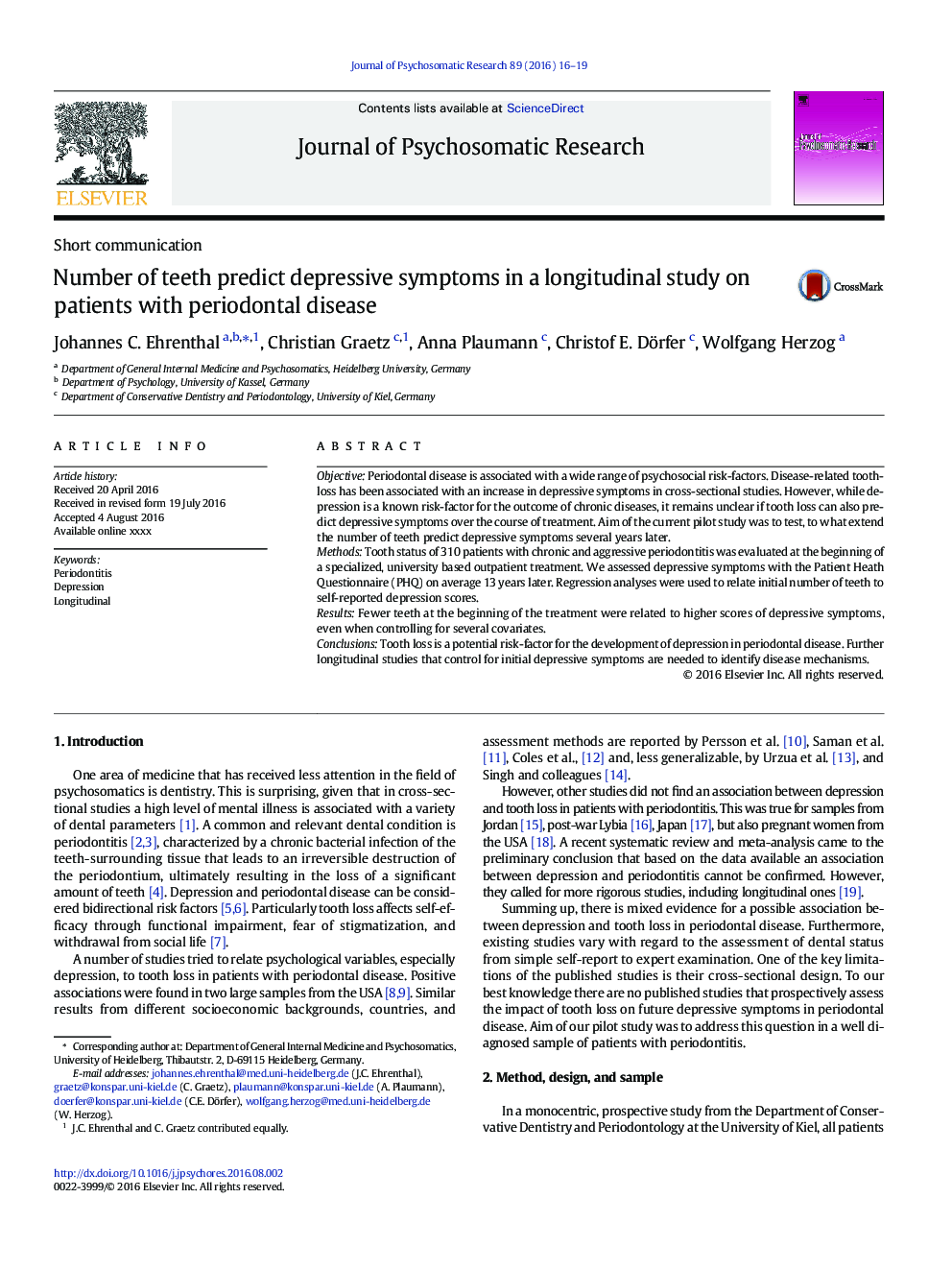| کد مقاله | کد نشریه | سال انتشار | مقاله انگلیسی | نسخه تمام متن |
|---|---|---|---|---|
| 949098 | 1475906 | 2016 | 4 صفحه PDF | دانلود رایگان |
• Periodontitis has high prevalence rates and risk for chronic manifestation.
• Mixed results in cross-sectional studies on tooth loss and depression
• In this longitudinal study, number of teeth predict future depression scores
• Further prospective studies are needed.
ObjectivePeriodontal disease is associated with a wide range of psychosocial risk-factors. Disease-related tooth-loss has been associated with an increase in depressive symptoms in cross-sectional studies. However, while depression is a known risk-factor for the outcome of chronic diseases, it remains unclear if tooth loss can also predict depressive symptoms over the course of treatment. Aim of the current pilot study was to test, to what extend the number of teeth predict depressive symptoms several years later.MethodsTooth status of 310 patients with chronic and aggressive periodontitis was evaluated at the beginning of a specialized, university based outpatient treatment. We assessed depressive symptoms with the Patient Heath Questionnaire (PHQ) on average 13 years later. Regression analyses were used to relate initial number of teeth to self-reported depression scores.ResultsFewer teeth at the beginning of the treatment were related to higher scores of depressive symptoms, even when controlling for several covariates.ConclusionsTooth loss is a potential risk-factor for the development of depression in periodontal disease. Further longitudinal studies that control for initial depressive symptoms are needed to identify disease mechanisms.
Journal: Journal of Psychosomatic Research - Volume 89, October 2016, Pages 16–19
